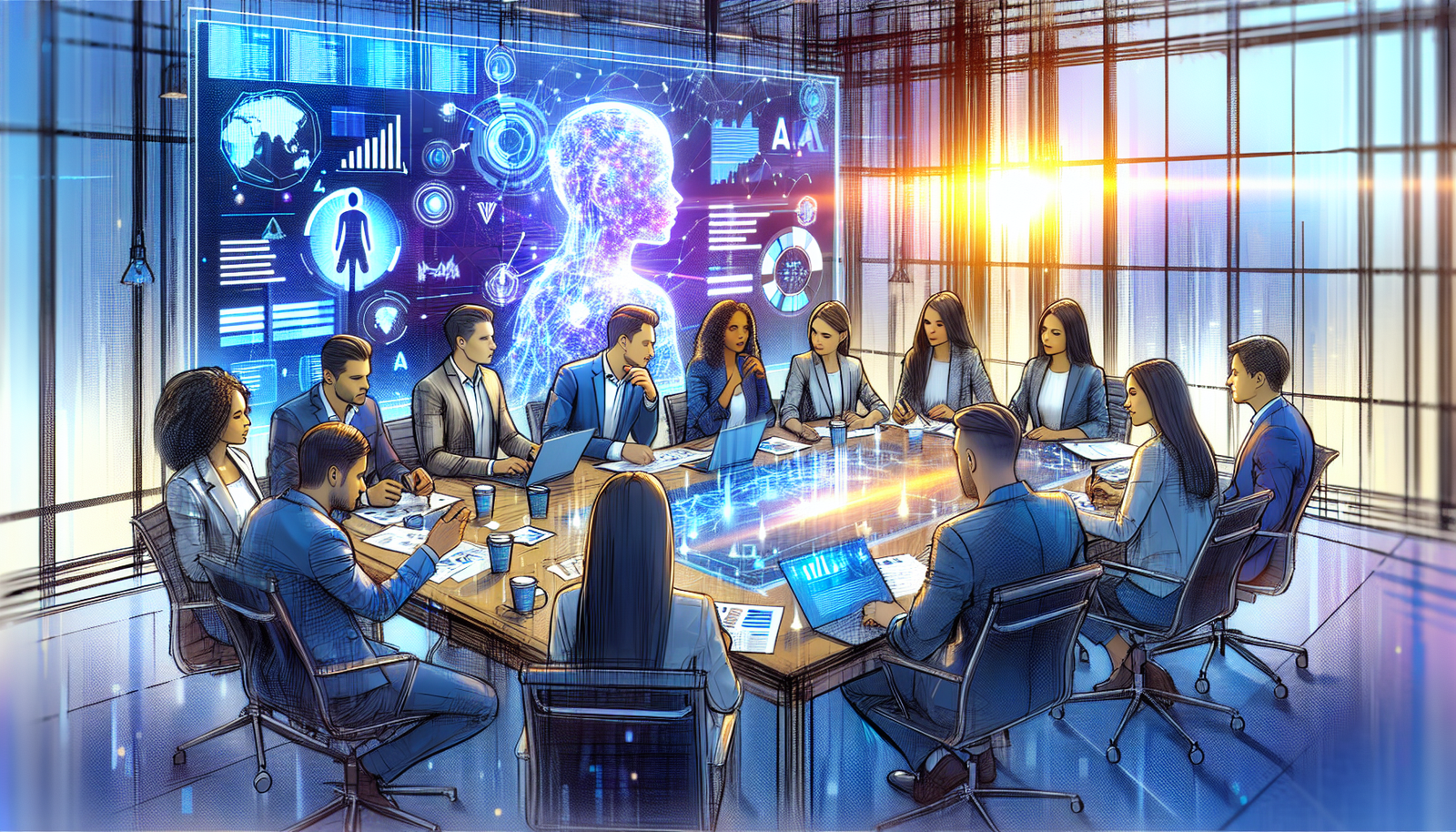The economic impact of artificial intelligence sparks heated discussions. Many questions arise about its transformative potential across various sectors. The implications go well beyond mere task automation; they concern sustainable growth and job creation. *Understanding these issues seems essential to grasp current economic dynamics.*
The ability of AI to increase productivity also poses a major ethical dilemma. Inequalities and equity must guide reflections on the implementation of these technologies. AI is not just a technical issue, but a vector of social and economic mutation.
The potential gains of artificial intelligence on the economy
The economic impact of artificial intelligence (AI) sparks intense debate among economists. Forecasts suggest a capacity to grow by 3% annually in terms of GDP, with productivity gains estimated at 2%. However, some analyses, such as that of Daron Acemoglu, report a modest increase of only 1.1 to 1.6% in GDP growth over a decade. These figures suggest that the impact of AI remains diffuse and uncertain for the time being.
The impact on employment and jobs performed
The adoption of AI leads to a reevaluation of professions and tasks. A 2023 study indicates that 20% of tasks in the United States could be affected by AI capabilities. This upheaval could mean job losses in certain professions. Nevertheless, Acemoglu believes that positions such as journalists or financial analysts will continue to exist. A transformation rather than an elimination of jobs seems to be on the horizon.
The duality of automation and productivity
Acemoglu highlights an essential distinction between automation and productivity enhancement. An excessive focus on automation deprives workers of opportunities to improve their efficiency. The question remains: should AI replace the workforce or contribute to its reinforcement? Developing assistive tools could generate more substantial benefits than substituting labor with machines.
Macroeconomic and social repercussions
The fallout from AI is not limited to the labor sector. It affects income inequalities and the structure of economic power. Recent research reveals that the distribution of AI benefits poses a delicate issue. The transition to an economy dominated by platforms exacerbates existing disparities, provoking significant social tensions.
Regulatory progression in the face of rapid innovations
In the face of this technological evolution, the lack of regulation raises crucial questions. The need for appropriate regulation for AI becomes imperative. Governments must contemplate the guidelines to adopt in order to regulate AI development while encouraging responsible innovation. The idea of a measured approach is supported by several experts, favoring a cautious adoption of new technologies.
The necessity of a long-term vision on AI
Projections regarding the economic impact of AI must incorporate a sustainable perspective that considers the long-term consequences on societal well-being. The notion of economic growth should not overshadow social concerns. Solutions aimed at balancing the interests of yesterday and tomorrow should guide the integration of AI into our economic systems.
The global stakes of artificial intelligence
The rise of AI is not isolated. Tech companies like Alibaba and TSMC are intensifying their commitment to this sector, influencing global dynamics. The rapid developments in AI, coupled with the quest for international competition, are likely to redefine global economic relations.
The challenges posed by AI
In current affairs, AI also presents ethical and regulatory challenges. The social perception of its ability to transform critical sectors raises concerns about its use. Users’ data, often compromised, reinforce this sense of distrust. The management of information and consumer protection must become priorities for both governments and companies.
Consequences and future perspectives
The effects of AI on income and employment require a critical perspective. A study on economic growth emphasizes the idea that automation could exacerbate inequalities while renewing interest in highly skilled jobs. Strategies incorporating education and vocational training will be crucial to adapt to this new environment.
Frequently asked questions
What are the main economic issues related to artificial intelligence?
Artificial intelligence raises several economic issues, particularly its impact on productivity, job creation, wealth redistribution, and income inequalities. AI technologies can change the structure of the labor market and influence economic growth.
How does artificial intelligence contribute to economic growth?
AI can stimulate economic growth by improving the operational efficiency of businesses, reducing production costs, and generating new market opportunities through advanced data analytics.
Which professions are most threatened by AI-related automation?
Industries where repetitive and predictable tasks are common, such as manufacturing, logistics, and certain aspects of customer service, are generally the most vulnerable to AI automation.
How can AI generate jobs?
While AI can eliminate certain professions, it also has the potential to create new jobs in areas like data analysis, programming, technology project management, and maintaining complex algorithms.
What economic risks are associated with the adoption of artificial intelligence?
Risks include increased economic inequalities, loss of certain professional skills, and potential effects on job quality for those who remain in the labor market.
How does the use of AI differ between developed and emerging economies?
Developed economies tend to adopt AI more quickly due to superior financial and technological resources, while emerging economies might see AI applications in areas like agriculture and public services, thus improving access to technology.
How can governments regulate the economic impact of AI?
Governments can implement responsible policies regarding the adoption and use of AI, aiming to protect workers, support continuous training, and ensure an equitable distribution of socio-economic benefits.
What role do companies play in the economic transformation caused by AI?
Companies are at the heart of economic transformation through AI innovation. They determine how these technologies are integrated into processes and how they will influence productivity and employment.
How are consumers affected by the rise of artificial intelligence?
Consumers generally benefit from AI through improved services, increased product personalization, and reduced costs. However, automation can also raise concerns regarding job quality and personal data protection.






